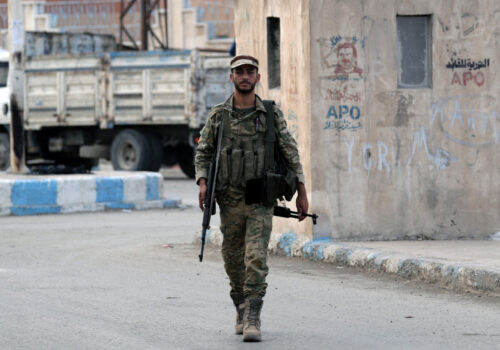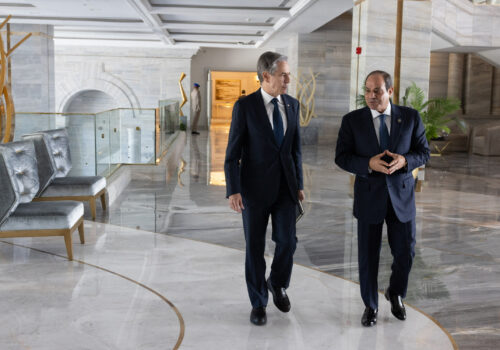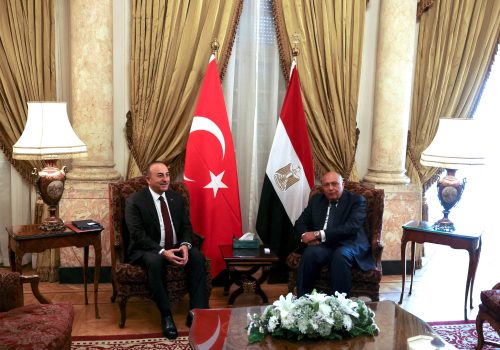Egypt-Turkey cooperation brings profound changes in ties with African countries
Egyptian President Abdel Fattah al-Sisi’s visit to Ankara on September 4 marked a significant turning point in Egyptian-Turkish relations. The visit has consequences that reverberate throughout the region, especially in North Africa and the Horn of Africa.
The meeting comes on the heels of Turkish President Recep Tayyip Erdogan’s February visit to Cairo, which enabled a thawing phase in the diplomatic crisis that began eleven years earlier when the Egyptian military ousted the Islamist government of Mohamed Morsi, which Turkey supported due to Erdogan’s friendship with the Muslim Brotherhood.
During their September meeting, Sisi and Erdogan announced the establishment of a bilateral Strategic Cooperation Council to coordinate mutual regional prerogatives at a high level. The inaugural meeting occurred during Sisi’s visit and is expected to occur annually. The economic dimension is one of the main factors influencing this rapprochement. In fact, Egypt is Ankara’s first economic partner in Africa.
SIGN UP FOR THIS WEEK IN THE MIDEAST NEWSLETTER
However, it would also be hard to deny the influence that the Gaza war has had on this rapprochement between two major Middle East and North Africa (MENA) countries. Egypt and Turkey clearly understand that they must agree with one another to offset Israeli power and gain negotiating capability.
The first tangible results of this phase of renewed cooperation have cooled the rivalry between Egypt and Turkey in terms of Libya’s political dynamics. Cairo and Ankara are willing to work together to facilitate stability in the North African country and push the eastern province in Benghazi, led by General Khalifa Haftar, and the United Nations-backed Government of Libyan National Unity (GNU) in Tripoli to resolve their historical differences.
Thus, the thaw in Turkish-Egyptian relations seems largely geared toward Libya. It primarily creates opportunities for the country’s reconstruction and development of its hydrocarbon production sector, which can offer significant profit margins for both Turkey and Egypt and is bound to consolidate a lasting platform of common interest.
On November 9, weeks after the meeting, the Turkish military attaché to Libya traveled to Benghazi to meet with Lieutenant General Khairi al-Tamimi, the secretary of the general command of the self-proclaimed Libyan National Army. This signaled a strong break from the past and demonstrated Turkey’s interest in resuming dialogue with Haftar in the east.
This follows an October visit to Istanbul by Haftar’s son, General Saddam Haftar. He met with Turkish Defense Minister Haka Fidan and initiated a formal detente after more than a decade of broken ties.
The developing cooperation between Egypt and Turkey in Somalia is no less significant. This month, in coordination with Ankara, Egypt deployed its military contingent and transferred substantial weaponry to Somali federal forces. The stated intent of wanting to support the government in Mogadishu in its fight against al-Shabaab is a pretext for exerting greater political and military pressure against Ethiopia, with whom no progress has been made regarding the dispute over the Grand Ethiopian Renaissance Dam development on the Blue Nile. It has been several years since the Ethiopian government decided to build the dam to satisfy internal agricultural needs, which alarmed Egypt because of its reliance on the Nile’s free flow and its fears that the dam would alter this flow—a vital threat for Cairo.
Egypt’s support for Somalia thus aims to achieve twofold results: using the threat of military intervention along Ethiopia’s southern borders and increasing support for the Somali government, which is, in turn, affected by a severe diplomatic crisis with Ethiopia. Indeed, the Somali government has condemned the understandings reached between Addis Ababa and the government of the breakaway republic of Somaliland regarding the possible development of an Ethiopian port on the Red Sea in exchange for the Ethiopian government’s simultaneous recognition of Somaliland’s independence.
Turkey, which has close ties with Ethiopia and has sold large quantities of armaments during the conflict in the regional state of Tigray, has not opposed Egyptian plans in Somalia and has coordinated with Cairo to facilitate its access to the country. This stance demonstrates the relevance of Ankara’s renewed relationship with Cairo, even as it seeks not to alter its relations with Addis Ababa, with which it has strong economic ties.
Egypt and Turkey are realizing these changes in political dynamics at a subregional level, acting independently of the endorsement of major superpowers. Whether this trend continues or is destined to change will tell much about the multipolar world.
Karim Mezran is a resident senior fellow with the Atlantic Council’s Rafik Hariri Center and Middle East Programs.
Nicola Pedde is the director of the Institute for Global Studies.
Further reading
Fri, Nov 8, 2024
Turkey is searching for a way out of Syria’s impasse
MENASource By Ömer Özkizilcik
Turkey has been at a standstill, which, combined with domestic political considerations, led to a reevaluation of its strategy.
Fri, Nov 1, 2024
Egypt’s new ceasefire proposal is too little, too late
MENASource By Shahira Amin
Egypt has been a key mediator between Israel and Hamas, but all mediation efforts have so far failed to break the impasse in talks.
Tue, Apr 11, 2023
Egypt-Turkey normalization: Cairo’s perspective
MENASource By Shahira Amin
After a decade of ruptured ties and simmering tensions, Egypt and Turkey are inching towards a rapprochement—a move thought unimaginable by some observers a couple of years prior.
Image: Egyptian President Abdel Fattah al-Sisi shakes hands with Turkish President Tayyip Erdogan after a signing ceremony in Ankara, Turkey September 4, 2024. REUTERS/Murad Sezer


